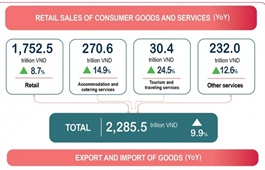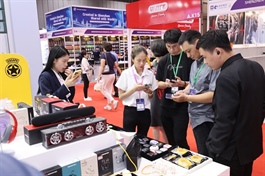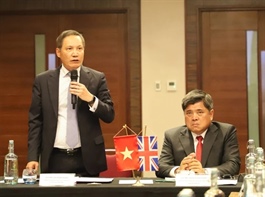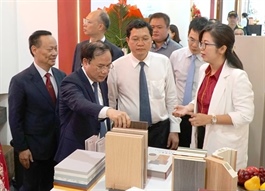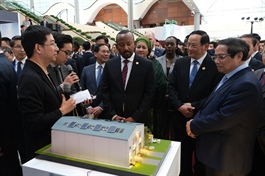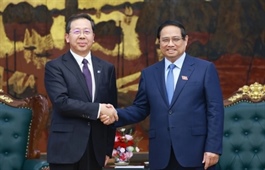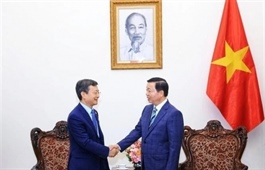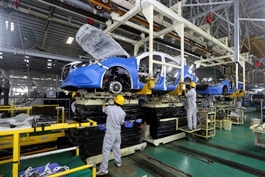A modern recycling industry is a must
A modern recycling industry is a must
Recycling plays a crucial role in environmental protection policies and legislation, and is a key component in advancing the circular economy. The development of the recycling industry is a strategic task outlined in the nation’s intend to encourage industrialisation and modernisation towards 2030.
Amid growing scarcity, depletion, disruption, and rising costs of raw material supplies, there is a pressing need to comprehensively review the legal framework, position, role, practices, and solutions for the recycling sector.
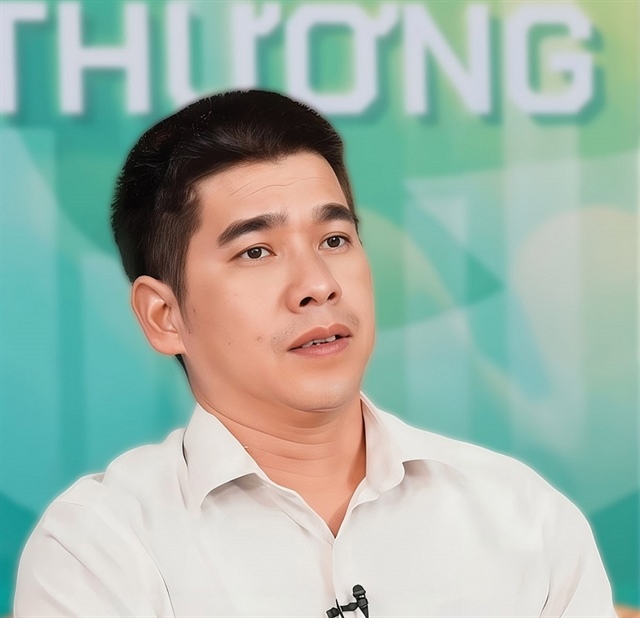
Dr. Lai Van Manh, head, Department of Economics of Natural Resources and Environment, Institute of Strategy and Policy on Agriculture and Environment |
Since 2020, policies and regulations on recycling have witnessed continuous improvement. Recycling is now incorporated into diverse Party documents, government resolutions, and development strategies, programmes, and projects issued by the prime minister and relevant authorities, particularly in key sectors such as energy, agriculture, resources management, environmental protection, and climate change response.
The legal framework has been significantly enhanced with various policy instruments that foster recycling activities in Vietnam. These include regulations on the development of the environmental industry and services; mandatory recycling requirements in waste management; the introduction of extended producer responsibility (EPR); eco-labelling standards; green credit initiatives; as well as green bonds.
Numerous measures encouraging recycling are highlighted in the national action plan for circular economy implementation through to 2035. Industry associations have engaged in the formulation of policies and laws, as well as in training and communication efforts to raise awareness among their members.
There have also been encouraging signs of enterprise engagement through projects, technology innovation, and management process improvements aimed at recycling waste materials and developing circular business models.
In 2024, the EPR Council Office, for the first time, announced a list of 24 qualified recycling units. Many other businesses, though not formally registered, have integrated recycling into their operations, processing materials such as glass, paper, metals, rubber, and fertilisers.
Recycling alliances and partnerships between recycling companies and informal collectors have been established. Foreign investors have begun exploring opportunities in recycling sectors such as textiles, packaging, and plastics. Export-oriented enterprises are increasingly utilising recycled materials to meet the sustainability requirements of international markets.
Collection and waste sorting models in residential areas have contributed to a reliable supply of recyclable materials, delivering economic, social, and environmental benefits.
Recycling facilities have made strides in upgrading technologies and management practices to optimise material use and turn waste into resources.
The local recycling sector has witnessed notable progress with concrete initiatives in recent years. In November 2024, Duy Tan Recycling reported significant achievements at the Green Vietnam Festival in Ho Chi Minh City, having collected and processed 92,900 tonnes of plastic waste, equivalent to over 700 million bottles, since its establishment in 2021.
It has plans to expand its annual production capacity of recycled plastic pellets to 100,000 tonnes by 2026.
At an event in March in Hanoi, Packaging Recycling Organization Vietnam (PRO Vietnam) reported having collected and recycled over 64,500 tonnes of various packaging in 2024, entirely completing the recycling volume entrusted by its members.
The organisation, founded in 2019, has developed efficient collection and recycling models for different types of packaging. During the trial period of 2022-2023, it successfully collected and recycled over 17,000 tonnes of packaging materials.
PRO Vietnam has set a target that by 2030, all packaging introduced to the market by its member companies will be collected and recycled.
Last July, the former Ministry of Natural Resources and Environment and South Korea’s Ministry of Environment signed an MoU on cooperation in establishing a resource recycling park.
The initiative aims to establish the complex in Vietnam to develop a modern, sustainable recycling industry, encourage green investment and investment in the recycling sector, and also create jobs, and ensuring social welfare for workers in the recycling and circular economy sectors. This will ultimately contribute to sustainable development and achieving environmental goals.
These initiatives collectively reflect Vietnam’s commitment to advancing recycling efforts and encouraging a circular economy.
- 10:13 15/05/2025




